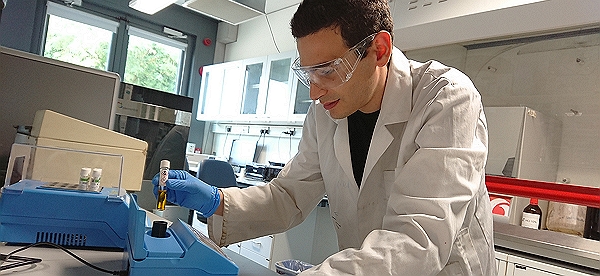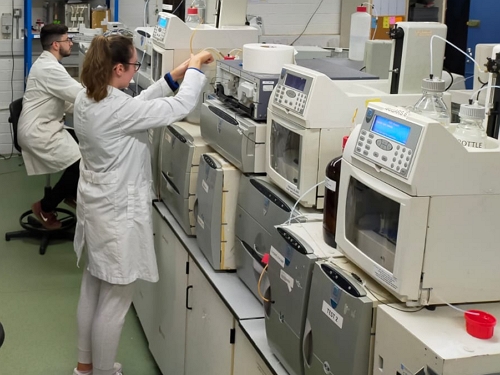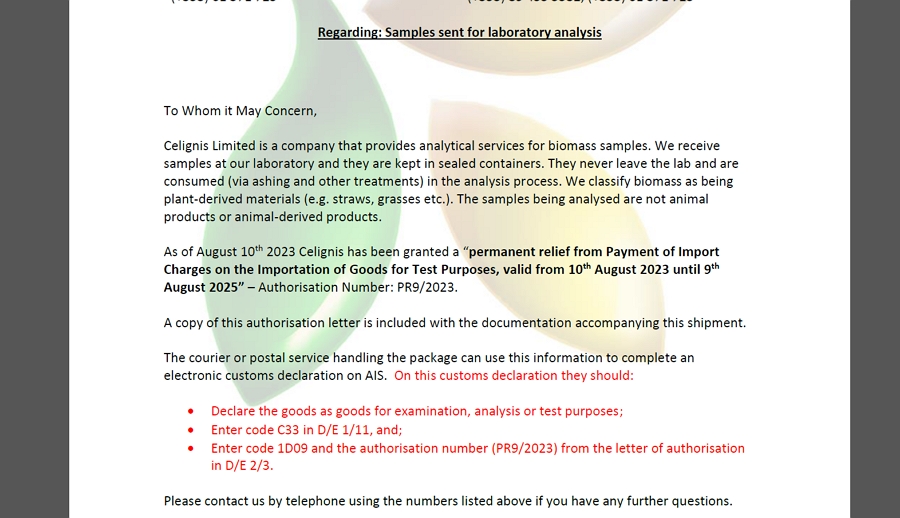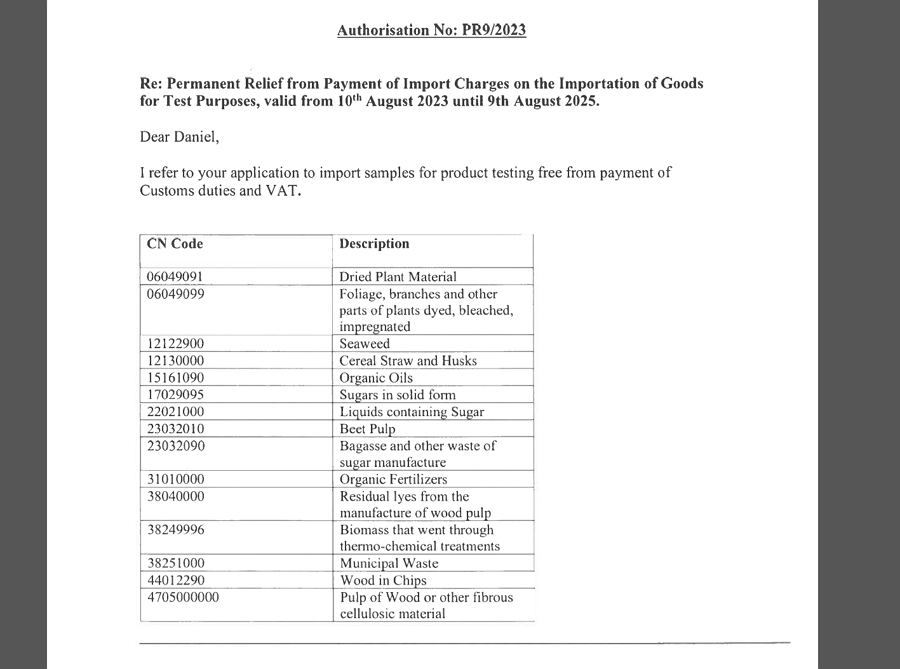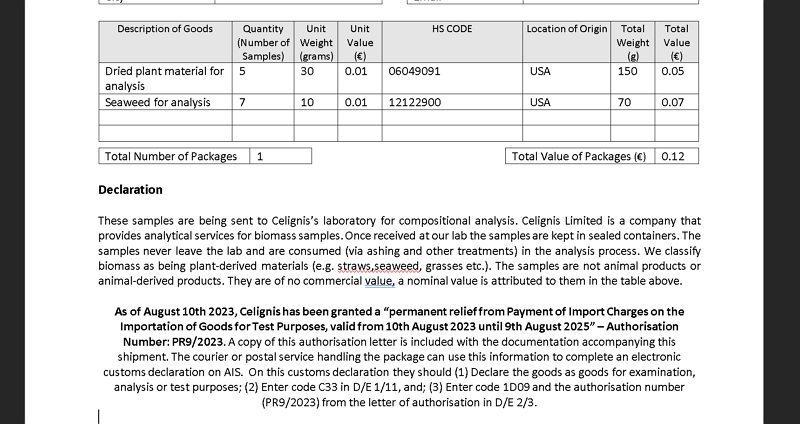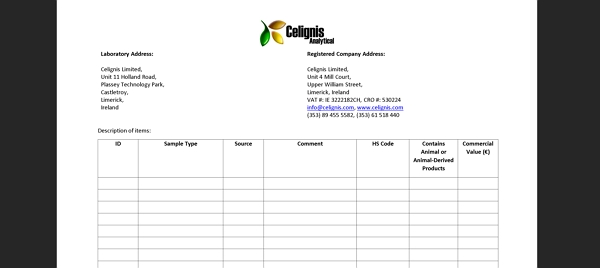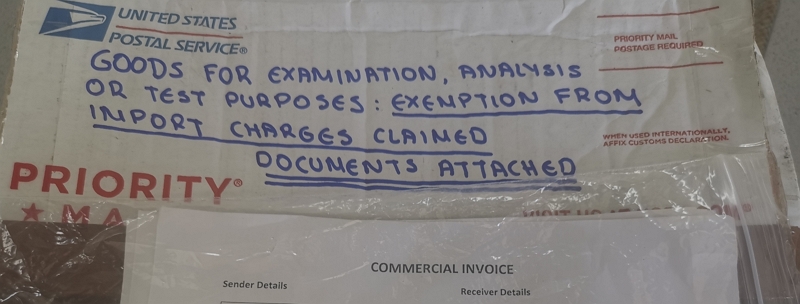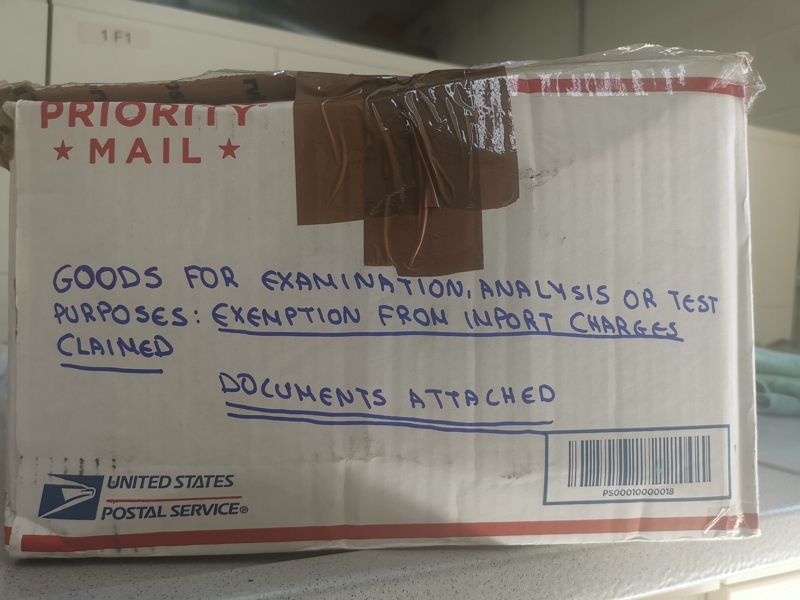Details of our Customs Exemption and Documents to Use When Shipping Samples
We understand how important your samples are and also how important it is that you get accurate data promptly. One bottleneck associated with the analysis of samples can be issues related to the delay in samples being
delivered to the lab. For example, there can be hold-ups associated with the country's Customs and Agricultural departments taking time to examine the samples and to determine whether fees or additional documentation need to
be provided for samples sent from overseas.
Thankfully Celignis has secured special provisions from Ireland's Revenue department which exclude samples sent for analysis from customs fees and duties. This means that the samples are no longer held by the courier companies or national departments whilst further investigations taken place. As a result, we now receive samples from as far afield as Australia in a couple of days and samples from the US within 3 days.
These developments mean that you no longer need to worry about your samples degrading, or their compositions changing, during the delivery and that we can provide data to you much more quickly than before.
Thankfully Celignis has secured special provisions from Ireland's Revenue department which exclude samples sent for analysis from customs fees and duties. This means that the samples are no longer held by the courier companies or national departments whilst further investigations taken place. As a result, we now receive samples from as far afield as Australia in a couple of days and samples from the US within 3 days.
These developments mean that you no longer need to worry about your samples degrading, or their compositions changing, during the delivery and that we can provide data to you much more quickly than before.
These steps are only required if your are sending the samples from outside of the European Union, if you are sending samples from within the EU then it is not necessary to include the documents listed below.
If you are sending the samples from outside the EU then please ensure you include the following documents with your shipment:
If you are sending the samples from outside the EU then please ensure you include the following documents with your shipment:
Cover Letter
The cover letter outlines the general contents of the package and the purpose for which it is being sent. It also directs the courier company and customs personnel of Celignis's exemption from customs fees for the samples.
Click here to download the cover letter. It can be included with your shipment without any modification.
Click here to download the cover letter. It can be included with your shipment without any modification.
Customs Exemption Certificate
This certificate allows for samples that are sent to Celignis to be exempt from customs duties and VAT, greatly increasing the speed at which we receive the samples in our laboratory.
Click here to download a copy of the certificate. It can be included with your shipment without any modification.
Click here to download a copy of the certificate. It can be included with your shipment without any modification.
Commercial Invoice
This document details the different types of samples that are being sent and assigns nominal values to them. Click here to download the
template. Please note that this document will need to be modified according to the specfics of your order.
You should fill in the details on the left hand side (sender details) and also the details of the samples. The HS code to use for the samples will depend on their type but it should be one of the HS codes provided in the table listed in the Customs Exemption Certificate. The HS codes provided there are suitable for most of the samples that we receive. In the Commercial Invoice one row is required in the table for each different HS code included in the shipment. For example, if the package contains 12 samples, 5 of which are wood (assigned HS code 06049091 = "Dried Plant Material") and 7 of which are seaweed (assigned HS code 12122900 = "Seaweed"), then 2 rows are required in the table, one for each of the HS codes. Using this example, the first line in the table would have the description "Dried Plant Material for Analysis" with a quantity of 5, then in the next column would be assigned the average weight of each sample. The unit value should be put as one cent (i.e. 0.01). Then include the HS code (06049091 in this case) and put your country as the location. The total weight should be equal to column 2 multiplied by column 3. Total value should be column 2 multiplied by column 4, i.e. €0.05.
Click here to see the details for the above example (5 wood samples and 7 seaweed samples) included on the Commercial Invoice, please note that the value for "Total Value of Packages" is the sum of the last column and that the "Total Number of Packages" should be equal to one.
Finally, please put your details and signature in the lower boxes of the Commercial Invoice.
You should fill in the details on the left hand side (sender details) and also the details of the samples. The HS code to use for the samples will depend on their type but it should be one of the HS codes provided in the table listed in the Customs Exemption Certificate. The HS codes provided there are suitable for most of the samples that we receive. In the Commercial Invoice one row is required in the table for each different HS code included in the shipment. For example, if the package contains 12 samples, 5 of which are wood (assigned HS code 06049091 = "Dried Plant Material") and 7 of which are seaweed (assigned HS code 12122900 = "Seaweed"), then 2 rows are required in the table, one for each of the HS codes. Using this example, the first line in the table would have the description "Dried Plant Material for Analysis" with a quantity of 5, then in the next column would be assigned the average weight of each sample. The unit value should be put as one cent (i.e. 0.01). Then include the HS code (06049091 in this case) and put your country as the location. The total weight should be equal to column 2 multiplied by column 3. Total value should be column 2 multiplied by column 4, i.e. €0.05.
Click here to see the details for the above example (5 wood samples and 7 seaweed samples) included on the Commercial Invoice, please note that the value for "Total Value of Packages" is the sum of the last column and that the "Total Number of Packages" should be equal to one.
Finally, please put your details and signature in the lower boxes of the Commercial Invoice.
Packing List
This document lists each of the samples that are being sent. Click here to download the
template. Please note that this document will need to be modified according to the specfics of your order.
In the Table a separate row should be given for each sample. Please insert rows into the Table in Microsoft Word if there are not enough rows in the template file provided.
The first column should contain the name of the sample, i.e what is written on the box/bag/container in which the sample is stored.
The second column details the type of sample, this should be written as the descriptor for the HS code of the sample (e.g. "Dried Plant Material" for HS code 06049091) followed by "for analysis".
The third column should include the name of the country from which the sample is being sent.
The fourth column should always contain the text "For Laboratory Analysis" whilst the fifth column should contain the HS code of the sample.
Please ensure that the sixth column contains "NO" and that the last column always has the value "0.01" for each sample.
Click here to see an example packing list for a package containing 5 wood and 7 seaweed samples sent from the USA.
In the Table a separate row should be given for each sample. Please insert rows into the Table in Microsoft Word if there are not enough rows in the template file provided.
The first column should contain the name of the sample, i.e what is written on the box/bag/container in which the sample is stored.
The second column details the type of sample, this should be written as the descriptor for the HS code of the sample (e.g. "Dried Plant Material" for HS code 06049091) followed by "for analysis".
The third column should include the name of the country from which the sample is being sent.
The fourth column should always contain the text "For Laboratory Analysis" whilst the fifth column should contain the HS code of the sample.
Please ensure that the sixth column contains "NO" and that the last column always has the value "0.01" for each sample.
Click here to see an example packing list for a package containing 5 wood and 7 seaweed samples sent from the USA.
Please include the cover letter (as-is) and the Customs Exemption letter (as-is) and the filled-in versions of the Commercial Invoice and Packing List with your shipment.
These should all be printed twice, with the documents inside the box and also inserted inside a transparent envelope, with pull out sheeting, to be attached on the outside of the parcel.
Please do not include the quote with the shipment as Customs might get confused thinking that this represents the value of the samples.
Then, please mark clearly on the package the following note "Goods for examination, analysis or test purposes: exemption from import charges claimed". Example pictures showing this are shown here (the note was written on both the front and side of the package).
You can use any courier company that you choose to send us the samples. We would ordinarily recommend that DHL are used as they tend to provide the best service in Ireland. In contrast we tend to not recommend FedEx to our clients as their performance can be a little poorer at times. However, if you prefer to send us samples by FedEx then that is not a problem.
We can also arrange for a courier to pick up your samples and deliver them to us, for which we will charge you what the courier company charges us for this service.
Please do not include the quote with the shipment as Customs might get confused thinking that this represents the value of the samples.
Then, please mark clearly on the package the following note "Goods for examination, analysis or test purposes: exemption from import charges claimed". Example pictures showing this are shown here (the note was written on both the front and side of the package).
You can use any courier company that you choose to send us the samples. We would ordinarily recommend that DHL are used as they tend to provide the best service in Ireland. In contrast we tend to not recommend FedEx to our clients as their performance can be a little poorer at times. However, if you prefer to send us samples by FedEx then that is not a problem.
We can also arrange for a courier to pick up your samples and deliver them to us, for which we will charge you what the courier company charges us for this service.
If you have any questions about the above process then please feel free to contact us. We can also pre-prepare these documents on your behalf if you prefer, providing we have the required
details (e.g. the names of all of the samples).


